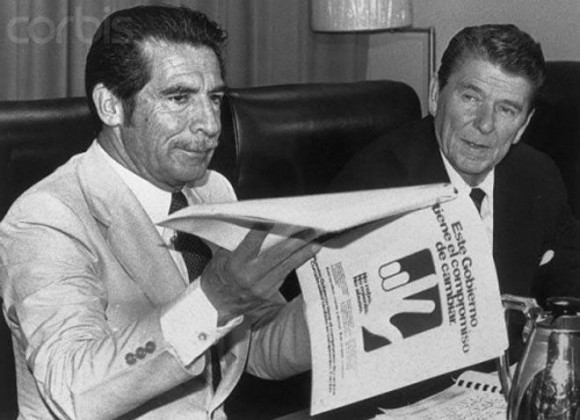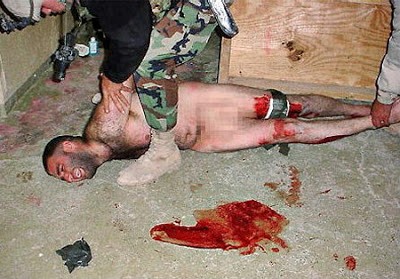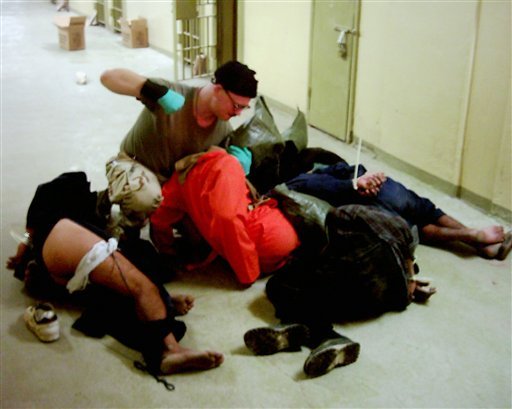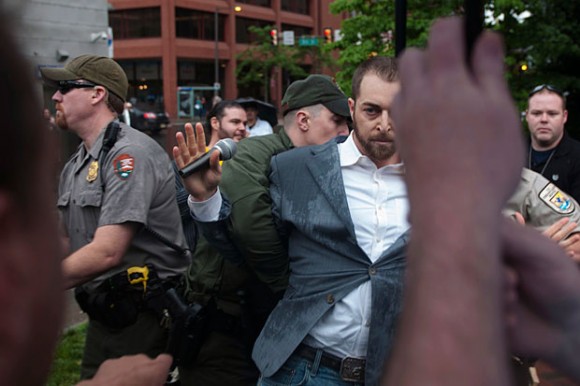
The historic conviction of former Guatemalan dictator Efrain Rios Montt of genocide and crimes against humanity was annulled late last night by the country’s high court.
BBC:
The three-to-two ruling by a panel of constitutional judges annuls everything that has happened in the trial since 19 April, when Gen Rios Montt was briefly left without a defence lawyer.
The defence team had walked out of the court on the previous day in protest at what they called “illegal proceedings”.
…According to the constitutional court ruling, the guilty verdict and the 80-year sentence handed down by Judge Jazmin Barrios on 10 May are therefore now void.
Human rights group Amnesty International said it was a “devastating blow for the victims of the serious human rights violations committed during the conflict”.
Montt’s lawyers had walked out in protest, called for the dismissal of the judges, tried to delay the proceedings, etc. It seems like their tactics to stall were effective, if belatedly.
See more on the trial and conviction here.
Update: Prior to this news, The New York Times hosted a debate on just how culpable the Reagan administration was in the war crimes in Guatemala. Here’s Greg Grandin’s take:
…even before [Reagan’s] 1980 election, two retired generals, who played prominent roles in Reagan’s campaign, reportedly traveled to Central America and told Guatemalan officials that “Mr. Reagan recognizes that a good deal of dirty work has to be done.”
Once in office, Reagan, continued to supply munitions and training to the Guatemalan army, despite a ban on military aid imposed by the Carter administration (existing contracts were exempt from the ban). And economic aid continued to flow, increasing to $104 million in 1986, from $11 million in 1980, nearly all of it going to the rural western highlands, where the Mayan victims of the genocide lived.
This aid helped the Guatemalan military implement a key part of its counterinsurgency campaign: following the massacres, soldiers herded survivors into “model villages,” detention camps really, where they used food and other material supplied by the U.S. Agency for International Development to establish control.
And Reagan was consistent in his moral backing for Guatemala’s genocidaires. On Dec. 5, 1982, for instance, he met with Rios Montt in Honduras and said he was “a man of great integrity” and “totally dedicated to democracy.”
Just 10 days before this meeting, one declassified U.S. document reveals that the State Department had been informed of a “well-founded allegation of a large-scale killing of Indian men, women and children in a remote area by the Guatemalan army.”
Other declassified documents reveal that the White House was less concerned with the massacres than with their effectiveness, or with countering the bad publicitystemming from reports of the atrocities.
The day after Reagan’s endorsement, Guatemalan soldiers arrived at a village called Dos Erres and started killing. The slaughter went on for three days and by the time it was over at least 162 people, including many children, were dead.







